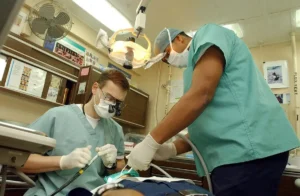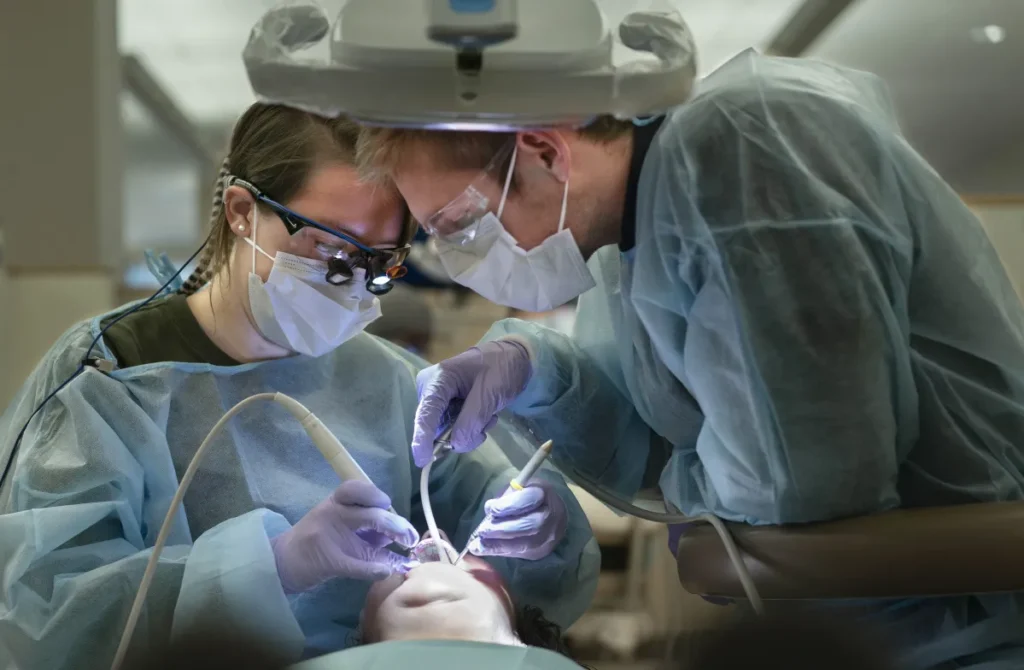Nigerian students who fled Ukraine during the Russian invasion and continued their medical studies online are now facing a major setback. Despite enduring the trauma of war and adapting to remote learning, many of these students have been informed that their hard-earned degrees will not be recognized in Nigeria.
This decision, made public by the Medical and Dental Council of Nigeria (MDCN), has sparked frustration and uncertainty among returnees who had hoped to complete their education despite the disruptions of conflict.
MDCN Declares Online Degrees Invalid
In a formal announcement released through its official Facebook and Twitter pages, the MDCN stated unequivocally that medical and dental degrees obtained online from Ukrainian universities starting in 2022 would not be recognized. According to the council, only degrees awarded through traditional, in-person instruction will be accepted once normal academic operations resume in Ukraine.
“The Medical and Dental Council of Nigeria (MDCN) wishes to inform the General Public that Medical and Dental Degree Certificates issued by Medical Schools from Ukraine from 2022 will NOT be honoured by the Medical and Dental Council of Nigeria until when normal academic activities resume,” the statement reads.
The council further urged students affected by the war to seek transfer to accredited institutions in other countries, warning that it would not validate any credentials earned entirely through online instruction.
“In the light of the above, the Medical and Dental Council of Nigeria will not honour any Medical Degree Certificates issued at the end of any online medical training,” MDCN emphasized in a separate social media post.

Students Disappointed by Nigeria’s Stance
The decision has triggered disappointment among Nigerian students who believed that adapting to remote learning was a practical solution under the circumstances. Moses Damilola Fehintola, one of the affected students, shared his experience with the BBC, revealing the emotional toll of the council’s decision.
Fehintola had been in his final year at Sumy State University in Ukraine when the war erupted. After weeks of disrupted studies and a stressful return to Nigeria, he continued his education online, hoping to graduate and enter the medical field back home.
“I even wrote to the Ministry of Health asking to be posted to a hospital,” Fehintola explained. However, he was rejected after the medical director told him that certificates from Ukraine had been invalidated by the MDCN.
Expressing his frustration, Fehintola said: “I will say this to Nigeria: if that’s what Nigeria wants, so be it. I will look for other countries to practise, and that will be Nigeria’s loss.”
His sentiments reflect a broader feeling among Nigerian students who feel abandoned by the system they expected would support their resilience and ambition.
Ukraine’s Role in International Medical Education
Before the outbreak of war in 2022, Ukraine was a hub for international students, especially those pursuing degrees in medicine, dentistry, and pharmacy. According to Erudera.com, over 80,000 international students were enrolled in Ukrainian universities in 2019 alone.
That year, India led the list of source countries, sending 18,429 students. Morocco followed with 8,233, while Nigeria ranked fifth, sending 4,379 students to study in Ukraine. Data from Ukraine’s Ministry of Education and Science in 2020 showed that students from Morocco, Nigeria, and Egypt together made up 20 percent of the total international student population in Ukraine.
The majority of these students enrolled in courses such as Medicine, Medical Practice, Dentistry, Pharmacy, and Management—fields that traditionally involve significant hands-on training and clinical practice.
The War and Its Impact on Medical Education
The full-scale Russian invasion disrupted not only the lives of Ukrainian citizens but also the academic futures of thousands of foreign students. Universities attempted to mitigate the disruption by shifting to online platforms, especially for international students who had returned to their home countries or sought refuge elsewhere.
This adaptation, however, has proven insufficient for students in Nigeria. While many students worldwide have resumed or continued their education virtually with the hope that their degrees would be honored, Nigeria’s refusal to accept online medical qualifications has left many of its returning students in limbo.
The MDCN’s rigid stance reflects concerns about the quality and rigor of online medical education, especially in disciplines that require extensive clinical exposure and hands-on experience. But critics argue that the exceptional circumstances of war, combined with the efforts made by Ukrainian institutions to maintain academic standards, warrant a more compassionate and flexible approach.
Students Left Seeking Alternatives
With Nigerian authorities unwilling to compromise, affected students now face tough decisions. The MDCN has advised those enrolled in Ukrainian medical and dental programs to transfer to universities in other accredited countries to continue their studies through in-person training.
However, such transitions come with steep financial, logistical, and academic challenges. Many of these students come from families that have already invested significantly in their education abroad. Starting over in another country often means navigating unfamiliar systems, applying for new visas, and securing additional funds—an overwhelming burden for students who have already survived war and displacement.
Some, like Fehintola, are considering practicing in other countries where their online qualifications might be accepted or where alternative pathways to certification exist. But this would mean a loss of talent for Nigeria, particularly in the medical field, which already suffers from chronic understaffing and brain drain.
A Call for Reconsideration
Observers and stakeholders in Nigeria’s education and healthcare sectors are urging the government to reconsider its decision. They argue that blanket disqualifications do not account for the extraordinary global disruption caused by war. Many have called for a case-by-case assessment of students’ qualifications, particularly for those who had already completed significant portions of their training in-person before the war.
There are also appeals for the establishment of bridging programs, where students can complete additional clinical rotations locally in Nigeria to meet the required standards for certification. Such initiatives, proponents argue, would support students while maintaining professional and educational integrity.
As it stands, Nigeria’s current policy not only risks derailing the dreams of hundreds of young doctors and dentists, but also deprives the country of urgently needed healthcare professionals. The ongoing global health challenges, including shortages in medical staff, only highlight the irony of discarding trained personnel over technicalities.
Conclusion
The situation underscores the need for responsive and humane policies in times of crisis. While maintaining standards in medical education is crucial, flexibility and innovation in policy-making are equally important—especially when young lives and national interests are at stake.
For now, students like Moses Fehintola must choose between starting over, leaving Nigeria, or hoping for a policy shift. Whatever path they take, the consequences will shape not only their futures but also the future of Nigeria’s healthcare system.







